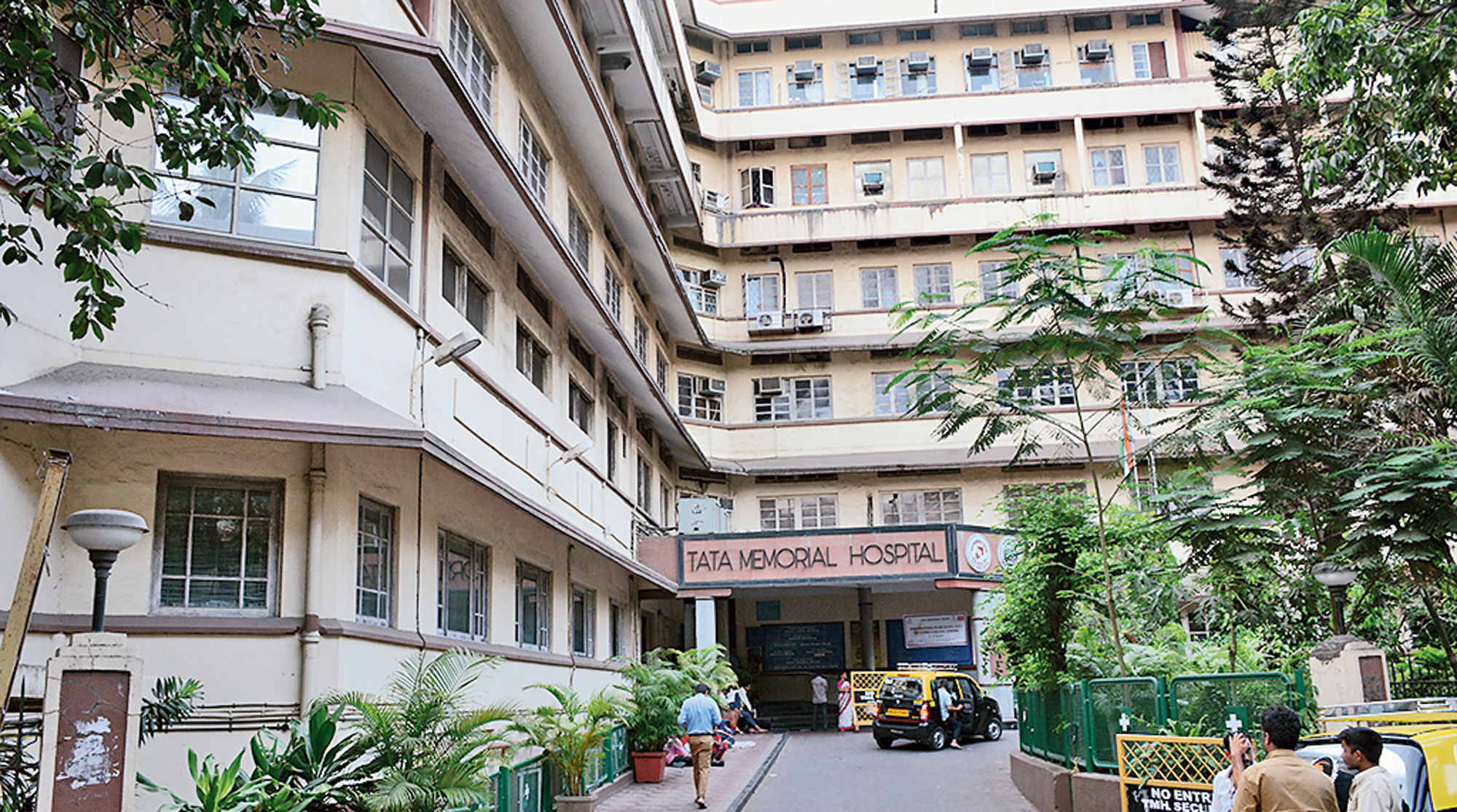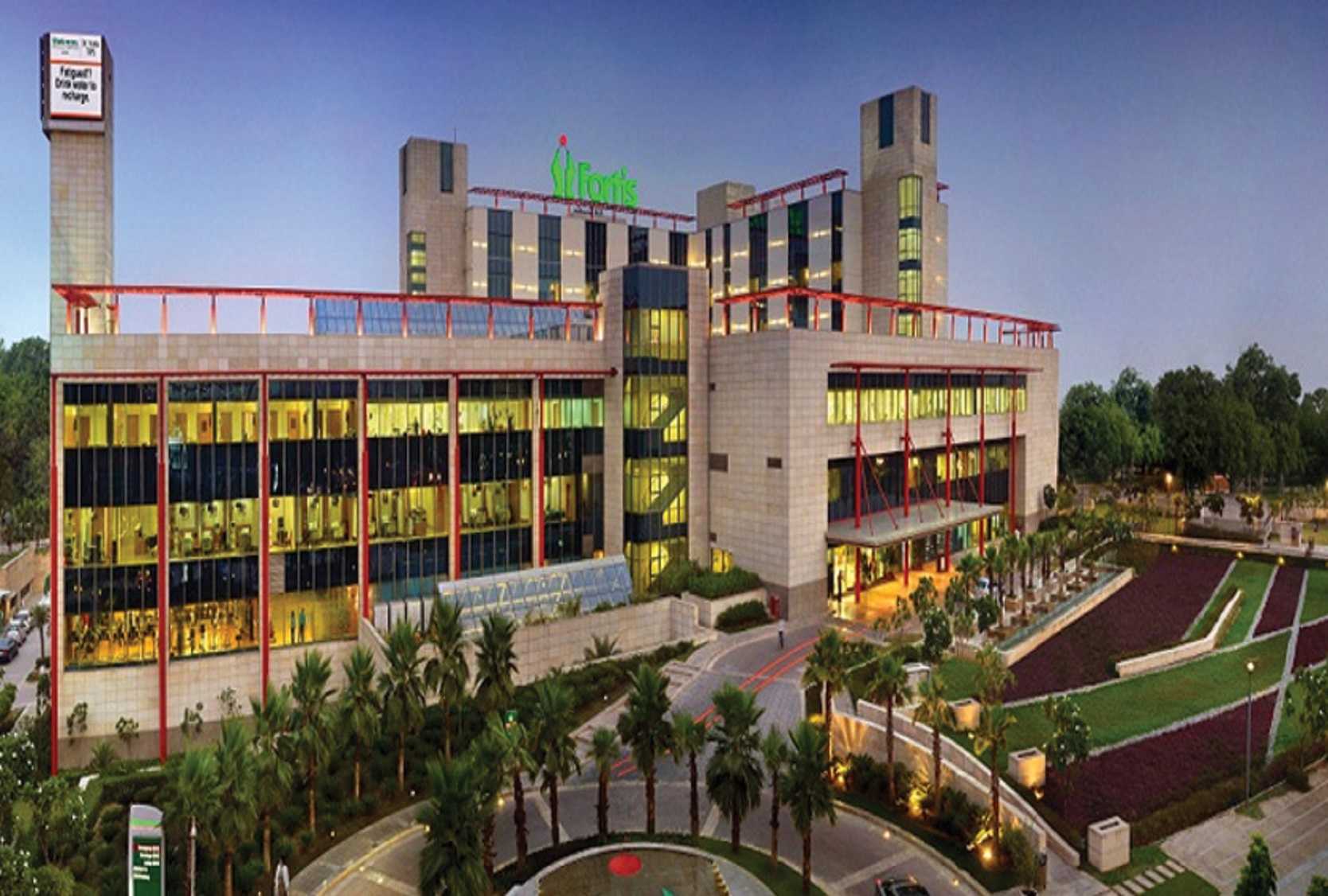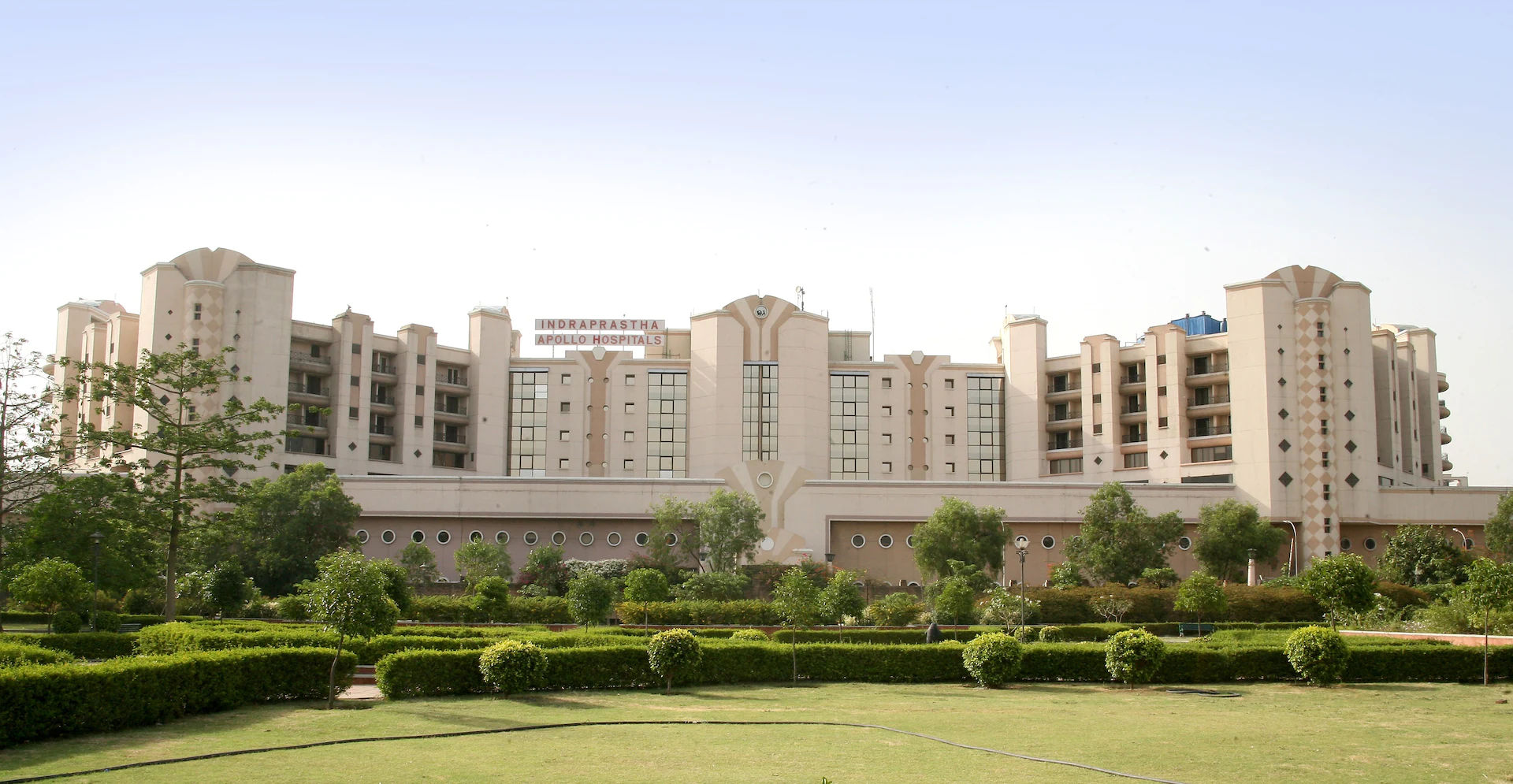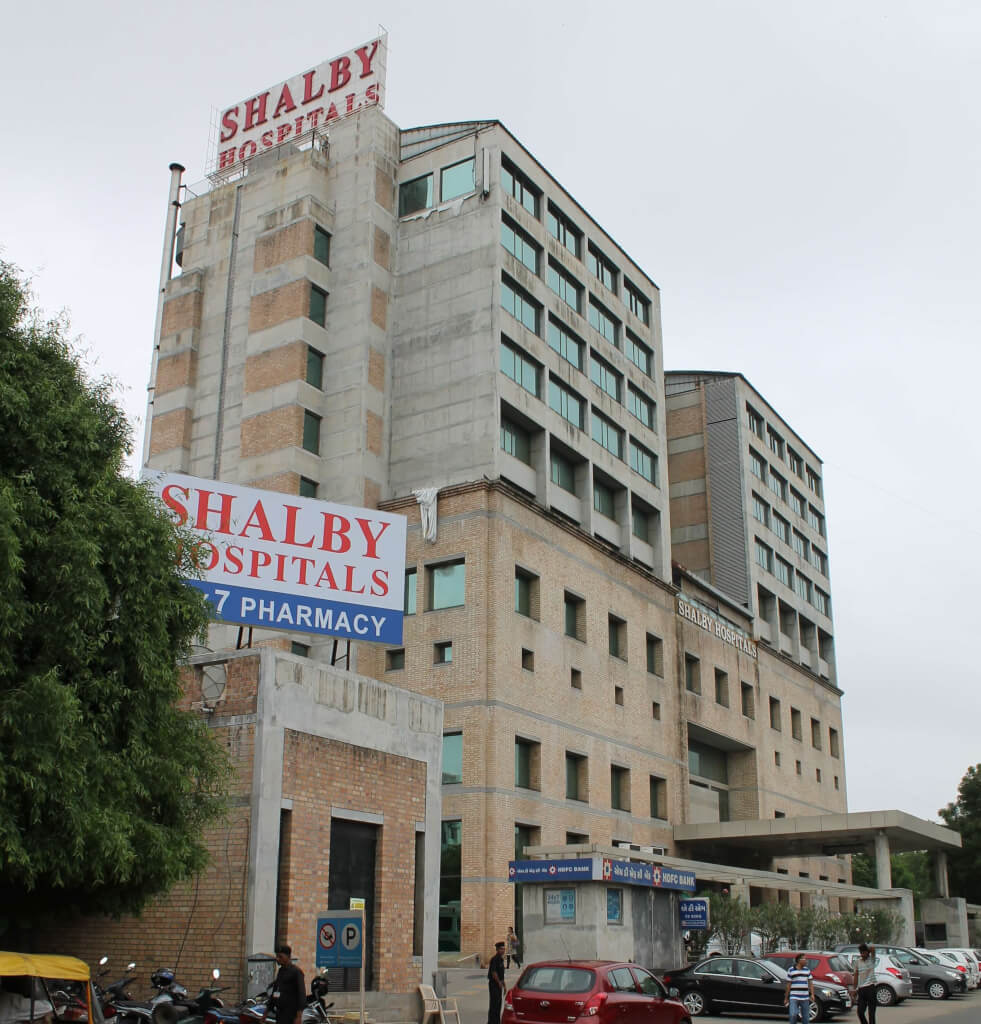Top 10 Best Indian Hospitals In 2023

Top 10 Best Indian Hospitals In 2023
The healthcare sector has grown to be one of India’s most significant economic and employment sectors. Indian Hospitals, medical devices, clinical trials, outsourcing, telemedicine, medical tourism, health insurance, and medical equipment are all part of the healthcare industry. India’s healthcare system is quickly growing as a result of better services, spending, and coverage by both public and private organizations.
The delivery of healthcare in India is divided into two categories: public and private. With few secondary and tertiary care facilities in big cities, the government’s public healthcare system concentrates on providing primary healthcare centres in rural regions rather than secondary and tertiary care facilities.
The majority of secondary, tertiary, and quaternary care facilities are administered by the private sector, mostly in metropolises and tier-I and tier-II cities. India’s competitive edge is the country’s vast pool of highly qualified medical professionals. Comparing India to its rivals in Asia and the West, it is considerably more affordable. Compared to the United States or Western Europe, surgery costs around one-tenth as much in India.
Dimensions of the Market
Possibly tripling in size to Rs. 8.6 trillion ($133.44 billion) in 2022, the healthcare market would have increased triple. The budget for 2021 showed that 1.2% of India’s public spending on healthcare was as a percentage of GDP.
More people need health insurance due to an expanding middle class, as well as a rise in the frequency of new diseases. The penetration of health insurance is anticipated to rise in the next years due to the growing need for low-cost, high-quality healthcare. Gross direct premium income for health insurance firms climbed 13.3% annually to Rs. 58,572.46 crores (US$ 7.9 billion) in FY21. Recent events show that 29.5% of all gross written premiums in the nation come from the health industry. The Indian medical tourism industry has a value of US$ 2.89 billion in 2020, and it is anticipated to grow to US$ 13.42 billion by 2026.
According to the India Tourism Statistics at a Glance 2020 report, 697,300 foreign visitors came to India in FY19 for medical care. Out of 46 locations included in the Medical Tourism Index (MTI) for 2020–21, India is placed 10th by the Medical Tourism Association.
By FY22, it is estimated that India’s healthcare infrastructure would be valued at $349.1 billion. The e-health industry is anticipated to be worth US$10.6 billion by 2025.
Building a healthy India is a priority
Hospitals, medical equipment, clinical trials, outsourcing, telemedicine, medical tourism, health insurance, and other related industries make up India’s healthcare sector. The industry is increasing fast as a result of increased public and private expenditure, expanded services, and coverage.
- The healthcare market in India is being driven by an increase in the prevalence of lifestyle diseases as a result of rising healthcare costs and technological advancements, a growing demand for affordable healthcare delivery systems, the emergence of telemedicine, a rapid uptake of health insurance, and government initiatives like e-health that offer tax benefits and incentives.
- It is anticipated that the healthcare industry would increase from $190 billion in 2020 to $372 billion in 2022, with a CAGR of 39%.
- The digital healthcare sector in India has a market value of INR 116.61 billion in 2018 and is projected to increase at a compound annual growth rate (CAGR) of 27.41% from 2019 to 2024 to reach INR 485.43 billion.
- To reach $32 billion by 2022, the diagnostics market is expected to grow at a CAGR of 20.4% from $5 billion in 2012.
- A CAGR of 13% is expected to be achieved by the in-patient healthcare industry between 2015 and 20.
- The most promising area of eHealth is India’s telemedicine business, where revenues are anticipated to reach $5.4 billion by 2025 and increase at a 31% compound annual growth rate (CAGR).
- The National Digital Health Blueprint has the potential to increase India’s healthcare industry’s economic value by $200 billion over the next 10 years.
- The largest publicly funded health insurance scheme in the world is found in India (Ayushman Bharat).
- A total of INR 17,691.08 crore was invested in 157 new accredited medical schools in 2014, representing India’s entire investment in medical education.
- The automatic approach permits 100% FDI for greenfield projects. A maximum of 100% of FDI may be allocated to brownfield projects using the government approach.
What Role Does the Healthcare Sector Play in the Economy?
Healthcare is one of the industries with the greatest growth rates despite the economic downturn. An expanding number of hospitals, medical device makers, clinical trials, outsourcing firms, telemedicine providers, medical tourists, health insurance providers, and medical equipment manufacturers are all contributing to the industry’s worldwide expansion.
The efforts of the public and private sectors to increase investments and broaden networks, services, and coverage have also helped to maintain growth.
A good healthcare system is essential for easing family responsibilities and advancing the country. A solid healthcare system is said to foster a healthy economy, and according to OCED Observer’s research, a 10% increase in life expectancy leads to 0.4% yearly economic growth. The prosperity of emerging nations’ economies is increasingly dependent on access to healthcare and a long life expectancy.
Some of them have even started to compete for thanks to a large pool of highly qualified medical professionals and persistent investments in healthcare infrastructure. The price of therapy has recently dropped significantly in a number of these nations.
The issue of whether it’s better to subsidize healthcare or have people pay for it remains up for debate. Hospitalization that is not covered by insurance has put entire communities at risk of severe financial hardship, leading to poverty across many cultures. Subsidization, on the other hand, has outraged many private players, leading to worse performance, fraud, and a lack of competition. There are other challenges to overcome. Government-subsidized insurance, for instance, receives little attention from private insurers.
Politicians must now make sure that healthcare organizations view people as partners in their expansion rather than as clients. This will help to increase the availability, affordability, and accessibility of healthcare. High-quality healthcare is now a perk found only in urban regions. While accounting for more than half of the GDP, the bulk of people in most developing nations reside in rural regions with no access to healthcare.
Technology, government efforts, and community involvement all serve to put healthcare facilities in perspective. The poor doctor-to-patient ratio in most developing nations’ rural areas continues to be a cause of worry. The Indian government’s Aspirational District Program (ADP) strives to give communities the tools they need to rebuild their lives. The initiative reaches about 200 million people (around 15% of India’s population), encouraging them to take charge of their health and well-being.
Nowadays, ADP is essential for reducing maternal mortality and managing other infectious infections. The faster rate of economic development across the nation is another important aspect of ADP. In other words, ADP shows that a person’s health and financial security are related.
The healthcare sector must make investing in people a top priority and a key performance indicator. Many pharmaceutical companies now have service organizations to connect with society’s most vulnerable people thanks to technological improvements. They have effectively communicated with the rural population, improved their healthcare, and boosted the local economy. To launch their outreach programs and enable people to assist themselves live better lives and contribute to the development of the country’s economy, other healthcare organizations might take inspiration from pharmaceutical companies.
Top 10 hospitals in India 2023
- Artemis Hospital, Delhi
- Tata Memorial Hospital, Mumbai
- Primus Super Specialty Hospital, New Delhi
- Fortis Hospitals, New Delhi
- Lilavati Hospital, Mumbai
- Indian Spinal Injuries Center, New Delhi
- Max Super Speciality Hospital, New Delhi
- Indraprastha Apollo Hospital, New Delhi
- BLK Super Speciality Hospital, New Delhi
- Shalby Hospital, Ahmedabad
1. Artemis Hospital, Delhi
 Managing Director – Dr Devlina Chakravarty
Managing Director – Dr Devlina Chakravarty
Total Beds – 600+
Address – Sector 51, Gurugram, Haryana – 122001
Contact – +91 124 4588 888; +91 124 4511 111; [email protected]
One of the top 10 hospitals in India and one of the finest for kidney transplants, Artemis offers a wide variety of inpatient and outpatient services in addition to a complete spectrum of specialized medical and surgical treatments. The WHO’s “Asia Pacific Hand Hygiene Excellence Award” was given to the hospital, which is the first hospital in the city to have JCI and NABH recognized. The top 10 hospitals in India routinely include Artemis.
In 2007, the 400-bed, cutting-edge, multispecialty Artemis Hospital in Gurgaon, India, was established. It covers 9 acres in total. One of India’s most up-to-date hospitals, Artemis, provides a wide range of cutting-edge medical and surgical procedures along with a full spectrum of inpatient and outpatient services. Leading medical professionals from around the nation and beyond now have access to cutting-edge technology thanks to Artemis, enabling them to raise the bar for medical treatment.
The hospital’s medical procedures and practices are evidence-based and compared to the best in the world. They have established themselves as one of the most well-acclaimed hospitals in the nation by offering excellent care in a welcoming, transparent, patient-centred setting that is also reasonably priced.
2. Tata Memorial Hospital, Mumbai

Managing Director – R. A. Badwe
Total Beds – 700+
Address – E Borges Road, Parel, Mumbai – 400 012
Contact – +91-22-24177000, 24177300, 24161413
Mumbai, India’s Parel neighbourhood is home to the Tata Memorial Hospital. TMH goes by the moniker TMH. It is a facility for the treatment and study of cancer that is connected to the Advanced Centre for Cancer Treatment, Research, and Education (ACTREC).
As a national comprehensive cancer centre for cancer prevention, treatment, education, and research, the centre is a significant cancer centre in this region of the world. Since 1962, it has operated as an independent entity supported and administered by the Department of Atomic Energy of the Government of India, which is also in charge of the institute’s management. On February 28, 1941, the Tata Memorial Hospital was officially opened by the Sir Dorabji Tata Trust as a facility of permanent significance with a caring mission for the Indian people.
3. Primus Super Specialty Hospital, New Delhi

Managing Director – Dinesh Batra
Total Beds – 130+
Address – Chandragupta Marg, Opp Russian Embassy, Chanakyapuri, New Delhi, Delhi 110021
Contact – +91 11-6620-6630; [email protected]
The most cutting-edge medical equipment is accessible at Primus Super Specialty Hospital, a top 10 hospital in India and one of the finest hospitals in India for kidney transplants. With the most recent tools and techniques, they do numerous spine operations under local anaesthesia, allowing patients to recover more quickly and stay out of the hospital shorter.
Modern multispecialty hospital Primus Super Speciality Hospital is ideally situated in the heart of New Delhi, the nation’s capital.
Faster healing, better health, and overall well-being are made possible by the hospital’s facilities and serene setting. The Primus Super Speciality Hospital has raised the bar for medical treatment thanks to its world-class surgeons, first-rate facilities, and cutting-edge modern technology. They aspire to be the best medical facility in the world.
The Primus team is always working to enhance the standard of the services, procedures, and care they provide. The outstanding personnel at Primus Hospital has been and still is the organization’s distinguishing quality.
Health for all is the motto of Primus Super Speciality Hospital, which is committed to all social causes and the improvement of the nation and the world at large. There are campuses for Primus Hospital in Nigeria, India, and the Republic of Benin. Numerous satellite clinics for the hospital are located all over the world.
4. Fortis Hospitals, New Delhi

Managing Director – Ashutosh Raghuvanshi
Total Beds – 160+
Address – A Block, Shalimar Bagh, New Delhi, Delhi 110088
Contact – +91 11-45302222
A well-known provider of contemporary healthcare and the greatest kidney transplant is Fortis Healthcare Limited. With 36 locations, it is one of the biggest healthcare organizations in the world. It has physicians and paramedics that are highly certified and skilled. In 10 different categories, Fortis Healthcare won awards at the 2019 FICCI Medical Travel Value Ceremony.
Leading multispecialty hospital in Delhi, Fortis Hospital offers all patients complete medical treatment. The Fortis hospital is a leader in the healthcare industry and offers services in a setting that is safe and caring, improving the well-being of patients and their families. The physicians and paramedical personnel of Delhi’s Fortis Hospital are quite knowledgeable and skilled. Every patient will receive exceptional care and thorough care at Fortis Delhi.
5. Lilavati Hospital, Mumbai

Founder – Late Shri Kirtilal Mehta
Total Beds – 323+
Address – A-791, A-791, Bandra Reclamation Rd, General Arunkumar Vaidya Nagar, Bandra West, Mumbai, Maharashtra 400050
Contact – 022-69318000; 69301000; 022-50598000; 022-50591000
A multispecialty hospital in India is called Lilavati Hospital. People seek therapy at this hospital from all around the world. “Human care is more than treatment,” reads the hospital’s motto. The dedication of this hospital to delivering high-quality treatment with a personal touch is inspired by the Sanskrit phrase “SarvetraSukhina: Santu, SarveSantuNiramaya.”
In the heart of Mumbai, near both domestic and international airports, sits the hospital. Only 10 beds and 22 doctors were available when it originally opened its doors in 1997. With 314 beds, one of the largest intensive care units (ICUs), the most sophisticated 12 operating rooms, more than 300 consultants, and over 1,800 staff members, it currently boasts several amenities. The hospital treats around 300 in-patients and 1,500 out-patients per day.
6. Indian Spinal Injuries Center, New Delhi
![]()
Chairman – P. S. Ahluwalia
Total Beds – 178+
Address – IAA Colony, Sector C, Vasant Kunj, New Delhi 110070.
Contact – 011 4225 5225
A Memorandum of Understanding between the Indian and Italian governments led to the creation of the Indian Spinal Injuries Centre. The San Raffaele Hospital in Milan executed the strategy on behalf of the Italian government. With the greatest in the world, it is today a model institution. No of their financial situation, everyone should have access to medical care. This is ISIC’s mission and guiding concept.
This is a medical facility with heart and soul, one that is committed to giving patients individualized, top-quality treatment and helping them discover “the pleasure of life.” It was registered under the Society Registration Act with Mr H.C. Sarin as the first chairman. Currently serving as Chairman is Major HPS Ahluwalia, an Indo-Pak War combat veteran and Mount Everest ascents on May 29, 1965.
The hospital began in 1996 and today has 178 beds and is a super speciality, tertiary care centre with a focus on the spine, orthopaedics, rheumatology, sports medicine, joint replacement, and neuro-sciences. Hydrotherapy has a premier rehabilitation facility. Cardiology, general surgery, and other services are considered to support services.
It boasts state-of-the-art diagnostic and surgical equipment in addition to a highly skilled group of physicians, surgeons, and physiotherapists who have all completed their education at some of the best universities in the world. As a significant centre for referrals, ISIC has gained recognition. Beyond simply India, patients of this hospital come from all around the world.
7. Max Super Speciality Hospital, New Delhi

Chairman – Abhay Soi
Total Beds – 530+
Address – 1 2, Press Enclave Marg, Saket Institutional Area, Saket, New Delhi, Delhi 110017
Contact – 011 2651 5050
A renowned multispecialty hospital with a strong reputation for upholding the highest standards in medicine is the Max Smart Super Speciality Hospital in Saket, located in south Delhi. It belongs to the Gujarmal Modi Hospital and Research Centre for Medical Sciences and has about 250 patient beds. The hospital is equipped with a sophisticated emergency and observation unit and twelve high-tech modular OTs (operation theatres).
The Max Smart Super Speciality Hospital in Saket is well-equipped with 72 critical care beds, a cutting-edge dialysis centre, and a specialized endoscopic division. The hospital has a flat panel C-Arm detector, a 3.0 Tesla digital broadband MRI, a 256 slice CT Angio, and electrophysiology navigation in cath laboratories. One of the medical specialities provided at this Saket hospital is orthopaedics. Other specialities include cardiology, paediatrics, neurology, urology, gynaecology, and obstetrics.
8. Indraprastha Apollo Hospital, New Delhi

Managing Director – Suneeta Reddy
Total Beds – 710+
Address – Mathura Rd, New Delhi,
Contact – +91 11 – 26925858 / 26925801/ [email protected]
It has contributed to one of India’s most dazzling success stories during the past 30 years. The Apollo Group was a key player in starting the private healthcare revolution in the nation. It is not just one of the largest organized healthcare organizations in the area. A gas scavenging system and three stages of air filtering are provided in each of the hospital’s 17 contemporary, well-appointed mobile operating rooms to ensure patient safety.
The Apollo Hospital Group, India’s largest healthcare conglomerate, owns Indraprastha Apollo Hospital, the second-most lucrative hospital in the city of Delhi. In 1995, the doors of this hospital were initially opened. Indraprastha Apollo Hospital became the first hospital in India and South Asia to receive international accreditation in 2005 when the Joint Commission International (JCI) the USA gave its approval. The hospital received a fourth accreditation from JCI in 2011, elevating it to the position of the top hospital in India.
The first successful liver transplants for children and adults in India were carried out at Apollo Hospitals in November 1998.
9. BLK Super Speciality Hospital, New Delhi

Managing Director – Dr Praneet Kumar
Total Beds – 650+
Address – Pusa Rd, Radha Soami Satsang, Rajendra Place, New Delhi, Delhi 110005
Contact – 011 3040 3040
The Top 10 Multi Super Specialty Hospitals in Delhi NCR are constantly listed as include BLK Super. It was founded by the prime minister and is one of the best facilities in India for kidney transplants. The greatest European hospitals’ most advanced medical and therapeutic techniques are replicated at BLK Hospital to remain abreast of new developments.
A multispecialty hospital with super specialities within departments committed to providing top-notch medical care, the Fortis Hospital in Shalimar Bagh, New Delhi, offers a wide range of medical services. One of the largest hospitals, it was inaugurated in 2010 to provide care for residents in North, West, and North-West Delhi as well as those in the neighbouring states. It is situated midway between the Metro stations of Subhash Place and Azadpur in North Delhi.
10. Shalby Hospital, Ahmedabad

Managing Director – Vikram Shah
Total Beds – 2000+
Address – Opp. Karnavati Club, Sarkhej – Gandhinagar Hwy Ahmedabad 380015
Contact – +91 79 40203000
Shalby’s standing in the Indian healthcare industry as a multispecialty tertiary hospital network. Several firsts have been performed at Shalby Hospitals, a famous joint replacement facility.
As a leading joint replacement facility around the globe, Shalby Hospitals has set several records. Since 2007, they have successfully performed hundreds of joint replacement surgeries, and the number is rising. Shalby’s development as a multispecialty hospital network in less than 26 years speaks volumes about our credibility and dedication to healthcare quality.
edited and proofread by nikita sharma




